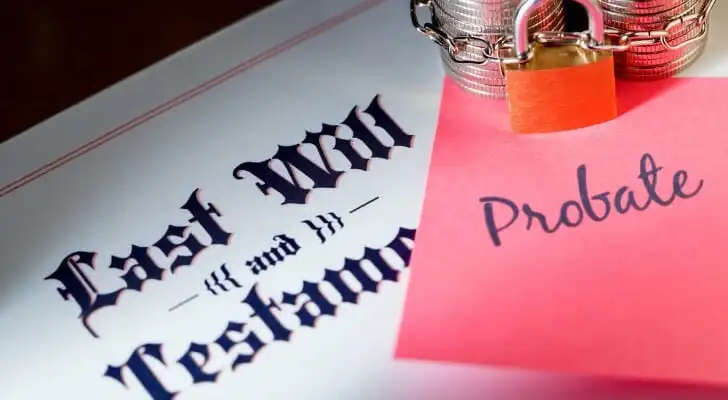

Estate planning can be complicated. You often need the services of a professional. Preparing a will is only one part of the estate planning process. When you are preparing your will, you need to decide whether or not a no-contest clause is appropriate. A no-contest clause is designed to prevent beneficiaries from challenging a will after you die. Here’s how it works and why you may want to include one in your will. A financial advisor can help you with all aspects of estate planning.
A no-contest clause in a will is sometimes called a “penalty clause.” The legal term for a no-contest clause is an “in terrorem” clause. The purpose of a no-contest clause in a will or revocable living trust is to put beneficiaries in fear of losing their inheritance if they challenge the will in court. A no-contest clause usually states that a beneficiary will lose anything they were to inherit upon a person’s death should they try to contest the will. For a no-contest clause to work, the beneficiaries must be inheriting something of value from the will or there will be no motivation not to go to court.
Including a no-contest clause in your will has several potential benefits:

When a person dies, chances are their estate will enter the probate process. The purpose of the probate process is to authenticate the validity of their last will and testament. Before estate assets can be distributed to the heirs of the estate, anyone with “standing” can claim of share of the assets by appearing in court. This is called contesting the will. To show standing the person contesting the will must be able to show that he or she may be entitled to be an heir and share in the asset distribution.
States have different laws about what standing actually means. If there are circumstances that a judge deems worthy, a person with standing has a chance of breaking the will. A no-contest clause is put in a will only if the testator (the person who is making the will) feels that because of a family or other situation, someone may indeed try to keep the will from being authenticated.
There are certain circumstances when a no-contest clause may not be enforceable. Laws vary across jurisdictions. In Florida and Indiana, no-contest clauses are not enforceable. Be sure and check your state and county laws. In some jurisdictions, a no-contest clause may not be enforceable if there is suspicion of fraud or forgery, if the person contesting the will has probable cause or if there is suspicion of undue influence on the person who made the will.
The judge makes the decision about these circumstances and whether or not those contesting the will have a valid claim. Be sure and sign your will. If it is left unsigned, that often constitutes probable cause and your will could be contested and possibly broken.
There are no sure-fire techniques for keeping your will from being contested, but there are actions you can take to lessen the likelihood of your will being contested.

No-contest clauses in a last will and testament are meant to cut down on family discord at the time someone dies and the will is probated. However, they are not standard fare in a will. You have to ask your attorney to include a no-contest clause in your will. Make your decision about including one in consultation with your attorney and the considerations mentioned here into account.
Photo credit: ©iStock.com/izusek, ©iStock.com/Motortion, ©iStock.com/stocknshares
Read More About Estate Planning a checklist for an estate plan that includes a power of attorney in Arkansas." />
a checklist for an estate plan that includes a power of attorney in Arkansas." />



More from SmartAsset
SmartAsset Advisors, LLC ("SmartAsset"), a wholly owned subsidiary of Financial Insight Technology, is registered with the U.S. Securities and Exchange Commission as an investment adviser. SmartAsset's services are limited to referring users to third party advisers registered or chartered as fiduciaries ("Adviser(s)") with a regulatory body in the United States that have elected to participate in our matching platform based on information gathered from users through our online questionnaire. SmartAsset receives compensation from Advisers for our services. SmartAsset does not review the ongoing performance of any Adviser, participate in the management of any user's account by an Adviser or provide advice regarding specific investments.
We do not manage client funds or hold custody of assets, we help users connect with relevant financial advisors.
This is not an offer to buy or sell any security or interest. All investing involves risk, including loss of principal. Working with an adviser may come with potential downsides such as payment of fees (which will reduce returns). There are no guarantees that working with an adviser will yield positive returns. The existence of a fiduciary duty does not prevent the rise of potential conflicts of interest.